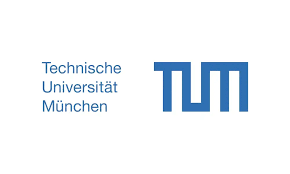Study Medicine in Germany

Contents
Pursuing higher education in medicine and becoming a doctor is a lifelong dream for many students. Given that a career in medicine requires precision and commitment, choosing the right place to study is a crucial first step. As a country well-known for its technology and cutting-edge research, studying medicine in Germany can be a promising opportunity for students from all over the world.
Let's dive into why studying medicine in Germany is a great choice and how you can make it happen.
Int. Study Programs
Universities
Cities
Why Study Medicine in Germany?
There are lots of reasons why studying medicine in Germany is a great option for international students:
- Quality education – German medical schools provide intense training that blends theory with lots of practice. They prepare you well for medical challenges.
- Low costs – Studying here can be cheaper than in many other countries. Public universities often charge minimal fees and sometimes even offer free tuition.
- Advanced research and technology – You’ll have access to the latest labs, research facilities, and technology, enhancing your studies and career.
- Practical focus – The schools emphasize hands-on experience. You'll get real-world exposure through clinical rotations and internships.
- Career – A degree from a German university can lead to many post-graduate opportunities both locally and globally, positioning you as a competitive professional.
Medical Degrees in Germany in English
While most medical studies in Germany are traditionally taught in German, there are an increasing number of opportunities for international students to study medicine in English:
English-taught programs
A growing number of German universities have started offering medical programs entirely in English to attract international students who prefer to study in English.
Hybrid programs
Some universities offer hybrid programs where the first few years of study are in English, gradually transitioning to German as students progress.
Exchange programs and partnerships
Many German universities have partnerships with institutions worldwide, offering exchange programs where students can study part of their medical degree in Germany in English.
Private Universities
While tuition fees at private universities can be higher, they often provide extra support services for international students and have smaller class sizes.
Research and elective opportunities
Even if you're in a German-taught program, there are plenty of chances to get involved in research projects and electives in English. Lots of professors and researchers are fluent in English and publish their research in English-language journals.
Best Medical Universities in Germany for International Students
Study Medicine in Germany: Degrees Offered
German universities offer a wide range of programs designed to provide students with the knowledge and skills they need to pursue a successful career in medicine.
Staatsexamen (State Examination)
In Germany, the path to becoming a medical doctor is through the Staatsexamen, not through separate bachelor's and master's degrees.
- Duration: Typically takes about 6 years to complete.
- Structure: The program is divided into three main phases:
- Preclinical Phase: Basic sciences and theoretical knowledge (2 years)
- Clinical Phase: Practical medical training and clinical sciences (3 years)
- Practical Year (Praktisches Jahr): 1 year of rotations in different medical specialties.
- Examinations: Includes three major state examinations (Physikum after the preclinical phase, and 2 parts of the state examination during and after the clinical phase).
Master's in Medical Sciences
While the standard way to becoming a licensed physician is the Staatsexamen, some universities offer master's programs in related medical sciences or health fields.
- Duration: Typically 2 years.
- Focus: These programs are often research-oriented or focused on areas such as public health, medical technology, or health management.
- Opportunities: Ideal for careers in medical research, healthcare administration, or other specialized areas.
Ph.D. in Medicine (Dr. med.)
Once you've finished your Staatsexamen and have your license to practice medicine, you can go on to get a Ph.D. (Dr. med.) if you want to do academic or research work.
- Duration: Typically 3 to 5 years.
- Structure: Involves conducting original research and writing a dissertation.
- Opportunities: Careers in academia, research institutions, and specialized clinical roles.
Postgraduate Medical Training (Residency)
After completing the Staatsexamen, medical graduates enter a residency program to specialize in a specific area of medicine.
- Duration: Varies depending on the specialty, usually between 4 to 6 years.
- Structure: Hands-on training under supervision in hospitals or clinics.
- Certification: Board certification in a medical specialty.
Want to understand more about the full student journey—from applying to universities to living and thriving in Germany? Check out our complete guide to studying in Germany.
Medical Education in Germany: Medicine-Related Studies
Dentistry
Dentistry is a highly respected field in Germany with a focus on diagnosing, preventing, and treating oral diseases. German universities offer comprehensive dental programs that combine theoretical knowledge with extensive clinical practice.
- Duration: Approximately 5 to 6 years.
- Phases: Basic sciences, pre-clinical training, clinical training, and a state examination.
- Focus: Oral and maxillofacial surgery, orthodontics, periodontics, prosthodontics, and general dentistry.
Pharmacy
Pharmacy programs in Germany are designed to provide a deep understanding of pharmaceutical sciences, including drug development, pharmacology, and patient care. These programs prepare students for careers in community pharmacies, hospitals, and the pharmaceutical industry.
- Duration: 5 years.
- Phases: Basic sciences, pharmaceutical sciences, practical training, and a state examination.
- Focus: Drug development, pharmacology, toxicology, clinical pharmacy, and pharmaceutical technology.
Public Health
Public Health is a field that brings together people from different disciplines to work on improving the health of populations. They do this through education, research, and policy development.
- Duration: 2 years for a master's degree.
- Phases: Core courses, electives, research projects, and a final thesis.
- Focus: Epidemiology, health policy, biostatistics, environmental health, and health economics.
Want to explore more programs in the fields of health, medicine, and life sciences? Browse our full list of study programs in Germany to find the one that matches your career goals.
FAQ
What are the language requirements to study Medicine in Germany?
What are the visa requirements for students?
Can international students work in Germany post-graduation?
This might also be of interest to you

Summer Semester in Germany: Your Complete Guide for April 2026 Intake
Thinking about studying in Germany but missed the October deadline? The summer semester might be your perfect opportunity. While most international...

Why More Indian Students Are Choosing Germany Over the USA
In the last decade, Germany has become one of the fastest-growing study destinations for Indian students. While the USA once dominated the dreams of...

Top Courses for Indian Students in Germany vs USA (2025 Guide)
Studying abroad is a dream for many Indian students, but choosing the right country and course can be confusing. The United States and Germany are...

Germany vs USA: Work After Study Options for Indian Students (2025 Guide)
When you're choosing where to study abroad, it's not just about the university name or the country hype. For many Indian students, the big question...

5 Cheapest Countries to Study Abroad for Indian Students (2026 Guide)
Studying abroad doesn't have to drain ₹40-60 lakhs from your family's savings. Five countries offer world-class education for under ₹10 lakhs per...

Germany vs USA: Which Is Better for Indian Students in 2025?
Choosing where to study abroad is a big deal, especially for Indian students. You're not just picking a country; you're deciding to move far from...

Germany Welcomes Displaced Harvard Students: A New Academic Home
In a move that’s left thousands of students in shock, the U.S. government has revoked Harvard University’s certification to enroll international...







